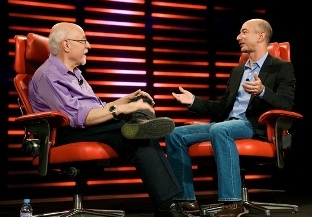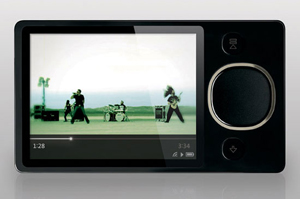 Another day, another set-top box.
Another day, another set-top box.
This one comes courtesy of Time Warner Cable CEO Glenn Britt, who told those at the Stanford C. Bernstein Strategic Decisions Conference in New York that the company planned to market equipment to its subscribers to make it easier for them to watch Internet video on their televisions.
Naturally, Britt offered few details, other than to say:
“Right now it’s pretty hard to get Internet stuff on your TV,” Britt said [via Reuters]. “We’re actually going to have equipment we make available to subscribers. It’s actually going to be a new wireless cable modem that will allow you to network everything in your house.”
Naturally, Britt didn’t elaborate or say when the set-top box would be available to subscribers.
“Within a relatively short time . . . it’s going to be very easy to get Internet TV on your big screen TV.”
OK. So Time Warner is throwing its hat into the ring with the likes of Apple and the AppleTV, TiVo, Netflix/Roku, Vudu, Microsoft, Sony, the cable companies, and seemingly hundreds more. As long as we’re watching the vendor sports between these players, we might as well throw Time Warner’s set-top box scheme into the mix.
Catching Up
After the break, a few stories of interest from the just-concluding week.
Continue reading »


 Google demonstrated its Android operating system again, this time at the I/O conference in San Francisco. And, well, it’s still full of promise, just in case you were wondering.
Google demonstrated its Android operating system again, this time at the I/O conference in San Francisco. And, well, it’s still full of promise, just in case you were wondering. Seemingly lost in the news of iTunes, the AppleTV, Amazon’s forthcoming online video streaming service, and the newly available
Seemingly lost in the news of iTunes, the AppleTV, Amazon’s forthcoming online video streaming service, and the newly available  The details, unfortunately, are scant. This is what we know:
The details, unfortunately, are scant. This is what we know: With the iPhone taking away the mind space of the iPod, the
With the iPhone taking away the mind space of the iPod, the  Get ready for the Internet of people, places, and things. Thanks to the iPhone and Android, it’s just around the corner — no pun intended.
Get ready for the Internet of people, places, and things. Thanks to the iPhone and Android, it’s just around the corner — no pun intended. Whrrl combines the mapping capabilities of the iPhone with the ability to find information on your friends, where you’ve been, where anybody has been — in essence, connecting people, places, and things. Whrrl currently works on the BlackBerry Pearl and Curve.
Whrrl combines the mapping capabilities of the iPhone with the ability to find information on your friends, where you’ve been, where anybody has been — in essence, connecting people, places, and things. Whrrl currently works on the BlackBerry Pearl and Curve. Imagine a world where your computer, cellphone, games console, storage devices, media streamers and other hardware all play nicely together, so that, for example, music, photos and video can reach the television or Hi-Fi no matter where in the home it originates.
Imagine a world where your computer, cellphone, games console, storage devices, media streamers and other hardware all play nicely together, so that, for example, music, photos and video can reach the television or Hi-Fi no matter where in the home it originates. Consumer electronics companies including Apple, Nokia and Sony, maybe softening their stance against a Europe-wide copyright levy on “the sale of products that can be used to copy music, books, films and other protected content”,
Consumer electronics companies including Apple, Nokia and Sony, maybe softening their stance against a Europe-wide copyright levy on “the sale of products that can be used to copy music, books, films and other protected content”,